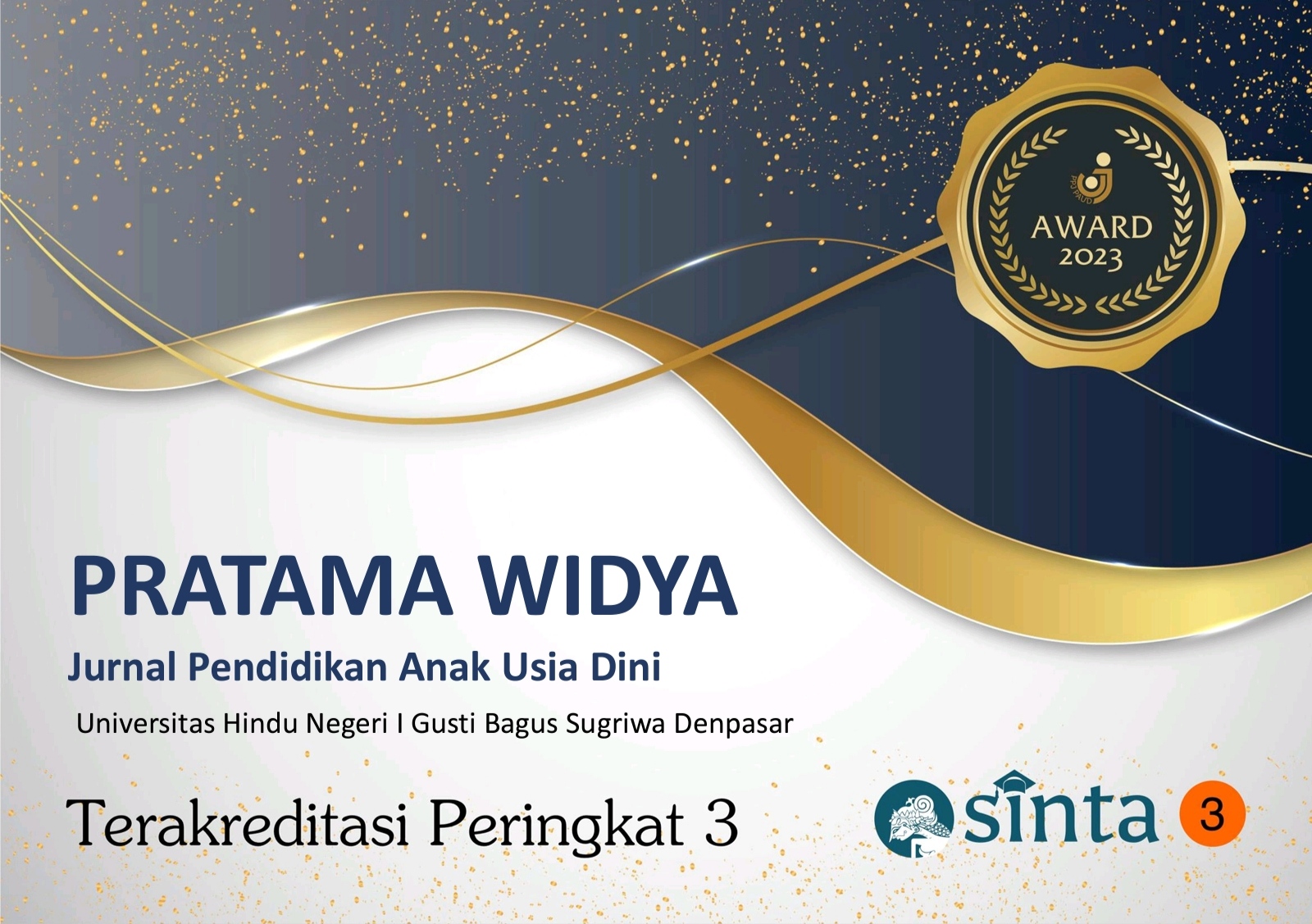PENERAPAN PEMBELAJARAN BERBASIS OTAK DENGAN PERMAINAN PUZZLE PADA ANAK USIA DINI
DOI:
https://doi.org/10.25078/pw.v7i1.238Keywords:
Keywords: Brain based learning, games, puzzlesAbstract
Brain-based learning is synonymous with approaches that use the brain's system of function in teaching and learning activities related to daily life. The application of brain-based learning in early childhood can be done with puzzle games. This research uses literature research methods or literature studies that examine brain-based learning through puzzle games. The results of this study show that brain-based learning through puzzle games can help children in coordinating their way of thinking to connect and act using numbers, numbers, symbols, colors, shapes, patterns, children can also learn to solve a problem, train memory and concentration skills, train children's patience, increase knowledge and train fine motor coordination and emotional management of children. The application of puzzle games in early childhood is also in line with the theory of development according to Piaget, namely the stages of cognitive development of children aged 5-6 years lead to the use of symbols, children can also understand identity, understand causal relationships, and children are able to classify and understand numbers, children can express thoughts and ideas, children can freely ask questions and answers, and children can understand simple numeracy concepts.
Downloads
Published
How to Cite
Issue
Section
License
Copyright (c) 2022 Nyoman Wiraadi Tria Ariani, Dhika Widarnandana I Gde , Wira Adi Armaeni Ketut

This work is licensed under a Creative Commons Attribution-NonCommercial-ShareAlike 4.0 International License.








